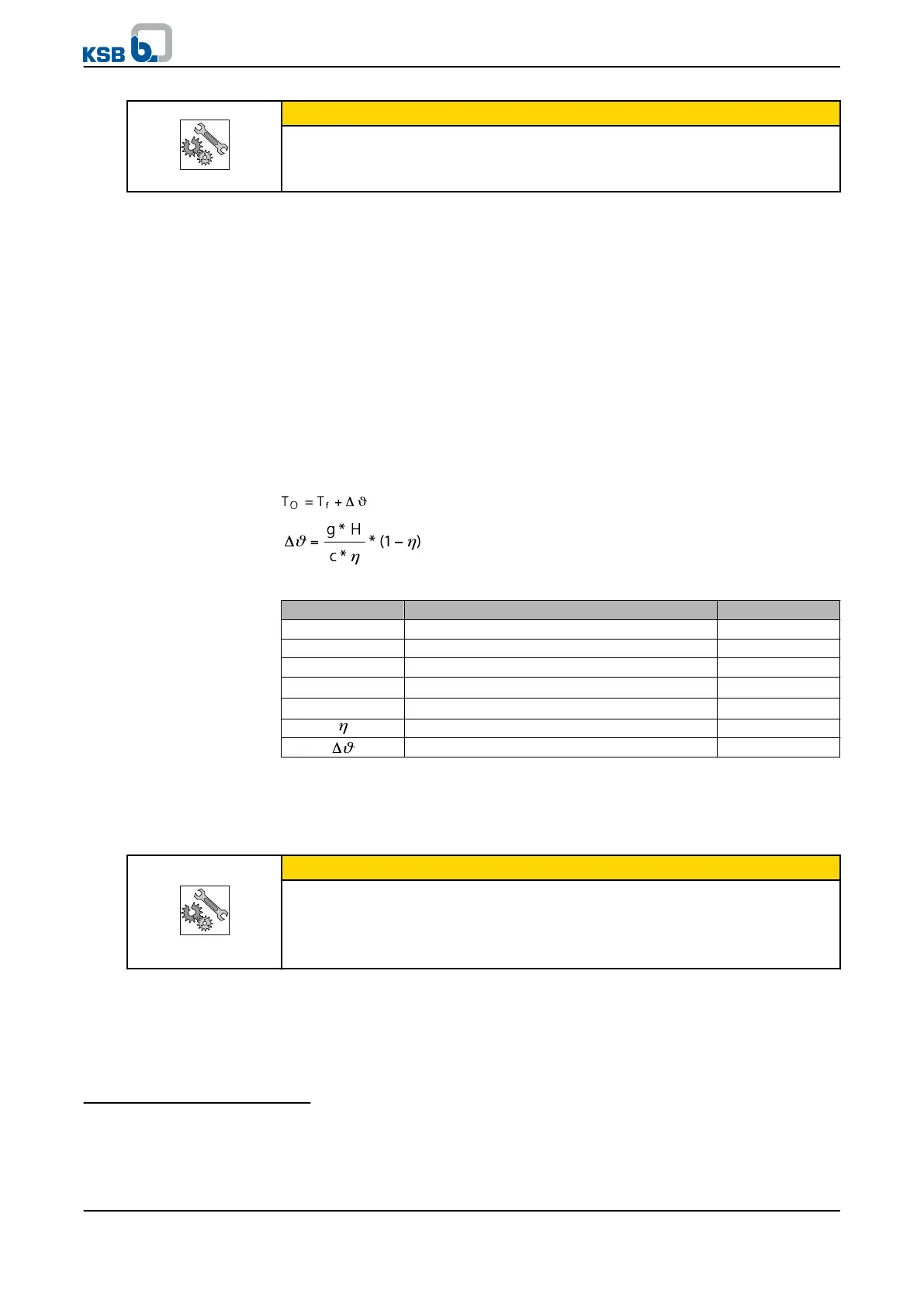CAUTION
Re-start while motor is still running down
Damage to the pump (set)!
▷ Do not re-start the pump set before the pump rotor has come to a standstill.
6.2.3 Flow rate
Unless specified otherwise in the characteristic curves or in the data sheets, the
following applies:
▪
Short-time operation: Q
min
10)
=0.1xQ
opt
11)
▪
Continuous operation: Q
min
10)
=0.3xQ
opt
11)
▪
2-pole operation: Q
max
12)
=1,1xQ
opt
11)
▪
4-pole operation: Q
max
12)
=1.25xQ
opt
11)
The data refer to water and water-like fluids. Longer operating periods with these
fluids and at the flow rates indicated will not cause an additional increase in the
temperatures on the pump surface. However, if the physical properties of the fluids
handled are different from water, the calculation formula below must be used to
check if an additional heat build-up may lead to a dangerous temperature increase at
the pump surface. If necessary, the minimum flow must be increased.
Table 17: Key
Symbol Description Unit
c Specific heat capacity J/kg K
g Gravitational constant m/s²
H Pump head m
T
f
Temperature of the fluid handled °C
T
o
Temperature at the casing surface °C
Pump efficiency at duty point -
Temperature difference °C
6.2.4 Density of the fluid handled
The power input of the pump increases in proportion to the density of the fluid
handled.
CAUTION
Excessive density of the fluid handled
Motor overload!
▷ Observe the information on fluid density indicated in the data sheet.
▷ Make sure the power reserve of the motor is sufficient.
6.2.5 Abrasive fluids
Do not exceed the maximum permissible solids content specified in the data sheet.
When the pump handles fluids containing abrasive substances, increased wear of the
hydraulic system and the shaft seal are to be expected. In this case, reduce the
intervals commonly recommended for servicing and maintenance.
10)
Minimum permissible flow rate
11)
Best efficiency point
12)
Maximum permissible flow rate
6 Commissioning/Start-up/Shutdown
44 of 78
KWP
